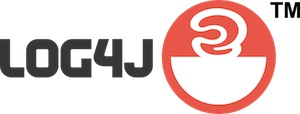Update: 13 December 2021
As an update to CVE-2021-44228, the fix made in version 2.15.0 was incomplete in certain non-default configurations. An additional issue was identified and is tracked with CVE-2021-45046. For a more complete fix to this vulnerability, it’s recommended to update to Log4j2 2.16.0.
————————————————————————————-
Original post below has now been updated:
15 December 2021 12:49 PM PT
We know that many of you are working hard on fixing the new and serious Log4j 2 vulnerability CVE-2021-44228, which has a 10.0 CVSS score. We send our #hugops and best wishes to all of you working on this vulnerability, now going by the name Log4Shell. This vulnerability in Log4j 2, a very common Java logging library, allows remote code execution, often from a context that is easily available to an attacker. For example, it was found in Minecraft servers which allowed the commands to be typed into chat logs as these were then sent to the logger. This makes it a very serious vulnerability, as the logging library is used so widely and it may be simple to exploit. Many open source maintainers are working hard with fixes and updates to the software ecosystem.
We want to help you as much as we can in this challenging time, and we have collected as much information as possible for you here, including how to detect the CVE and potential mitigations.
We will update this post as more information becomes available.

Am I vulnerable?
The vulnerable versions of Log4j 2 are versions 2.0 to version 2.14.1 inclusive. The first fixed version is 2.15.0. The fix in 2.15.0 was incomplete and 2.16.0 is now the recommended version to upgrade to. We strongly encourage you to update to the latest version if you can. If you are using a version before 2.0, you are also not vulnerable.
You may not be vulnerable if you are using these versions, as your configuration may already mitigate this (see the Mitigations section below), or the things you log may not include any user input. This may be difficult to validate however without understanding all the code paths that may log in detail, and where they may get input from. So you probably will want to upgrade all code using vulnerable versions.
The configuration for the docker scan command previously shipped in Docker Desktop versions 4.3.0 and earlier unfortunately do not pick up this vulnerability on scans. Please update to Docker Desktop 4.3.1+ with docker scan 0.11.0+, which we released today, 11 December 2021.
If you are using docker scan from Linux you can download binaries from GitHub and install in the plugins directory as explained in the instructions here. We will soon update the Linux CLI version to include the updated docker scan.
If you use the updated version, you should see a message in the output log like this:
Upgrade org.apache.logging.log4j:[email protected] to org.apache.logging.log4j:[email protected] to fix
✗ Arbitrary Code Execution (new) [Critical Severity][https://snyk.io/vuln/SNYK-JAVA-ORGAPACHELOGGINGLOG4J-2314720] in org.apache.logging.log4j:[email protected]
introduced by org.apache.logging.log4j:[email protected]To test this, you can check a vulnerable image, for example this image contains a vulnerable version.
docker scan elastic/logstash:7.13.3or to cut out all the other vulnerabilities
docker scan elastic/logstash:7.13.3 | grep 'Arbitrary Code Execution'For more information about docker scan, see the documentation.
Docker Hub Scans
Updated: Docker Hub security scans after 1700 UTC 13 December 2021 are now correctly identifying the Log4j2 vulnerability. Scans before this date do not currently reflect this vulnerability. We are looking into how to remediate this and will update this post when we do. Please use docker scan from the updated version above for images that were pushed ahead of 1700 UTC 13 December 2021.
Mitigations
You may well want to use a web application firewall (WAF) as an initial part of your mitigation and fix process.
This issue can be mitigated in prior releases of Log4j 2 (<2.16.0) by removing the JndiLookup class from the classpath.
example:
zip -q -d
log4j-core-*.jarorg/apache/logging/log4j/core/lookup/JndiLookup.classDocker Official Images
A number of the Docker Official images do contain the vulnerable versions of Log4j 2. For information on the current status updates for Docker Official Images please see https://docs.docker.com/security/ .
Other images on Docker Hub
We are working with the Docker Verified Publishers to identify and update their affected images. We are looking at ways to show you images that are affected and we will continue to update this post as we have more information.
Is Docker’s infrastructure affected?
Docker Desktop and Docker Hub are not affected by the log4j 2 vulnerability. Docker largely uses Go code to build our applications, not Java. Although we do use some Java applications internally, we have confirmed we are not vulnerable to CVE-2021-44228 and CVE-2021-45046.

Feedback
0 thoughts on "Apache Log4j 2 CVE-2021-44228"